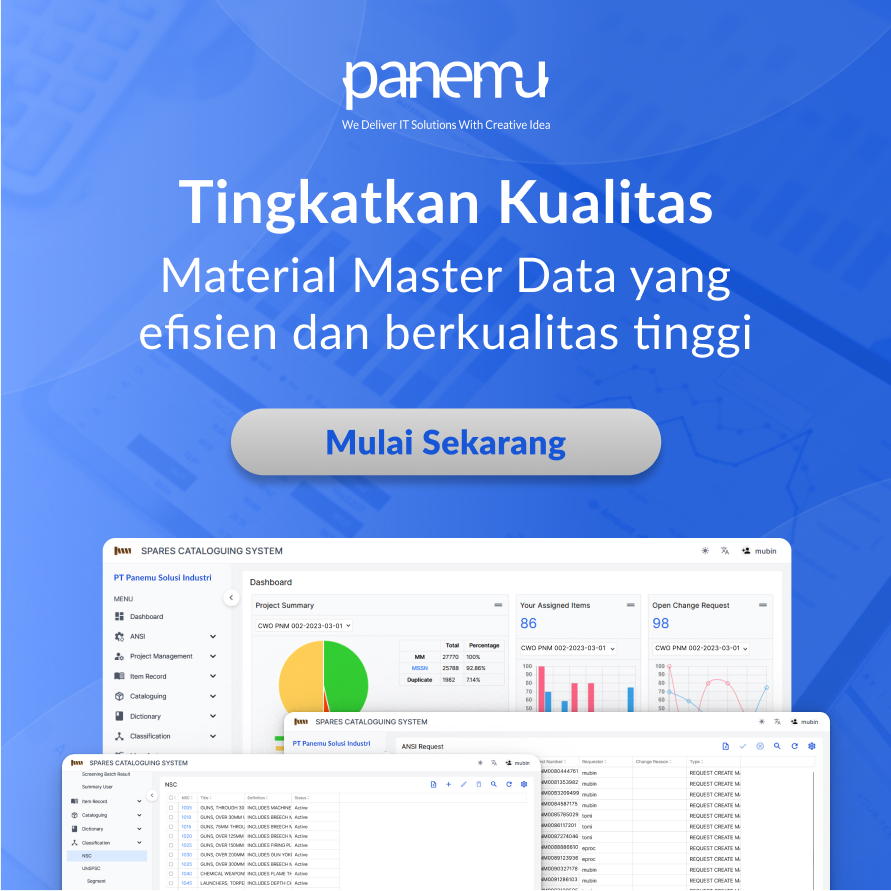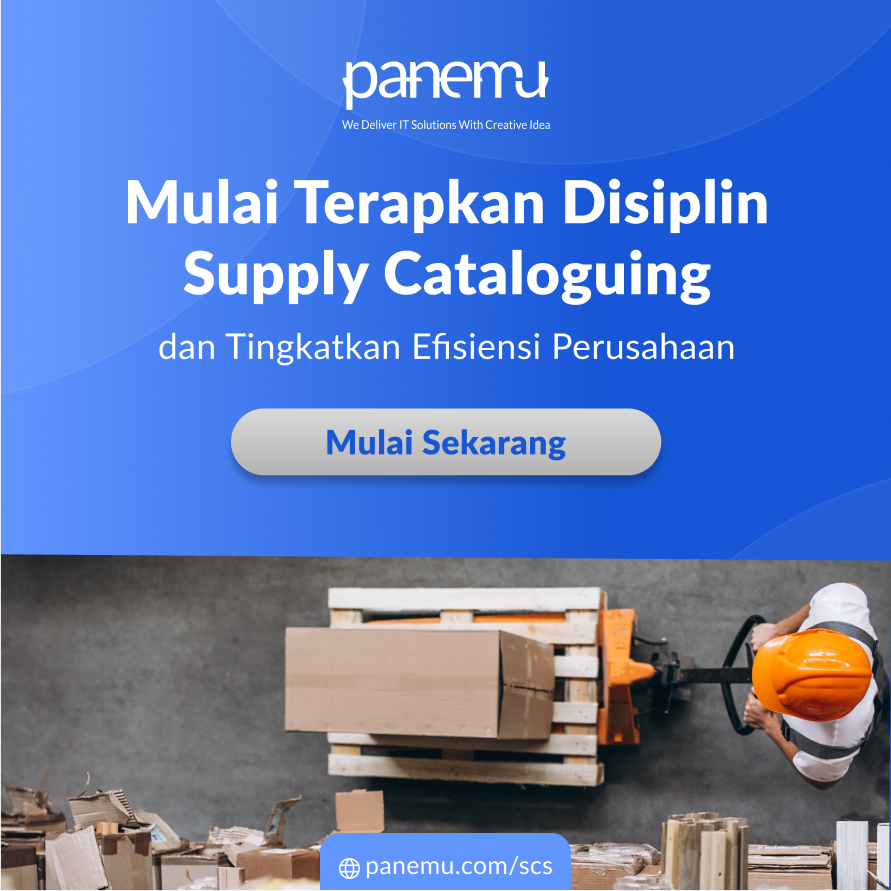Have you ever wondered how much time and money is lost simply because of inaccurate material information within company systems? In the industrial world, efficiency is determined not only by machines or labor, but also by the quality and consistency of data—especially data related to Maintenance, Repair, and Operations (MRO). Amidst the booming industrial growth in the Serang region, precise management of MRO master data is an imperative that cannot be ignored.
We live in an age where data-driven operationIt's no longer jargon, but a basic necessity. This article isn't here to teach you what MRO is. Instead, it invites you to re-examine how your company—especially in Serang—can transform MRO data management into an instrument of efficiency and competitiveness.
🧩 Field Reality: Where Do Problems Usually Start?
- Same Item, Different Name in System
Often one type of bolt has six different names within the system, simply because of spelling variations between departments. - Warehouse Filled with Redundant Stock
Because there is no centralized classification, material procurement becomes excessive and uncontrolled. - There is no uniform material code structure.
Without a consistent Nato Codification System (NCS) or UNSPSC, the decision-making process is hampered by data confusion. - Difficulty Tracing Assets and Materials for Audit
Unvalidated master data complicates traceability and makes the audit process an annual hassle.
🏭 Why Does Serang Need a Cataloging Solution Now?
Serang, as a strategic industrial area in Banten, is home to the manufacturing, petrochemical, logistics, and energy sectors. However, despite this enormous potential, many companies still use legacy material data from disparate systems.
This condition causes:
- Barriers to migration to modern ERP
- Data duplication that is detrimental to company finances
- Internal conflict between engineering and procurement teams
Digital transformation without MRO data cleansing is like building a building on a rotten foundation.
📘 Functional Case Study: From Data Chaos to Real Efficiency
Use Case – Automotive Manufacturing Industry
A vehicle manufacturing company in Serang struggled to migrate to SAP due to its material master data containing 35% duplicate items. A cataloging project from Panemu eliminated duplication, reorganized material codes, and integrated NCS classifications. The result: a 22% faster procurement process and a significant reduction in inventory costs within two quarters.
Use Case – Oil and Gas Company
One oil and gas operator off the coast of Serang faced issues with delayed spare part deliveries. It turned out the problem wasn't with the vendor, but rather with an inconsistent item classification system. After cataloging, the internal distribution system became more transparent and accurate.
⚙️ Important Elements in Effective Cataloguing
Cataloging isn't just about rearranging data. It's a process of strategically reconstructing material information. The following structure is required:
- Validated Description: Including function, size, specifications and brand
- Unique and Consistent Material Codes
- Standard Taxonomy: UNSPSC and/or NSC
- Criticality and Obsolescence Markers
- Consistent Format for Units, Language, and Units
Effective cataloguing will ensure that an item has only one representation in the system—with no room for doubt.
🔄 When is the Right Time to Start?
"The best time to tidy up data was five years ago. The next best time is today."
If your company is:
- ERP/CMMS migration or upgrade
- Restructuring of the procurement system
- Planning operational cost efficiency
- Increase transparency for both internal and external audits
...then it's time to get started with a master data cataloguing initiative.
🔍 Why Choose Panemu?
Panemu is more than just a cataloging service provider. We are a strategic partner with a deep understanding of the industrial ecosystem in Serang. With cross-sector experience, we help companies build a data foundation that's not only clean but also valuable for business.
We use the systemSaved Cataloguing System (SCS)which is able to adjust data structures according to the company's internal needs, but remains compatible with global standards such as NCS and UNSPSC.
We don't believe in one-size-fits-all solutions. Every project begins with a thorough mapping of your company's current situation and strategic goals.
🔗 Explore more:
In the modern industrial world, excellence doesn't just come from production speed or the latest technology. Often, the greatest advantage lies in the unseen: robust, organized data structures that are ready to be used whenever needed.
By entrusting your cataloging process to Panemu, you're not just clearing out outdated data—you're building a material knowledge system that's ready to support your business toward long-term efficiency and sustainability.
It's time to view data not as a burden, but as an asset. And Serang, with its incredible potential, is the perfect place to start.

